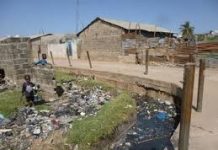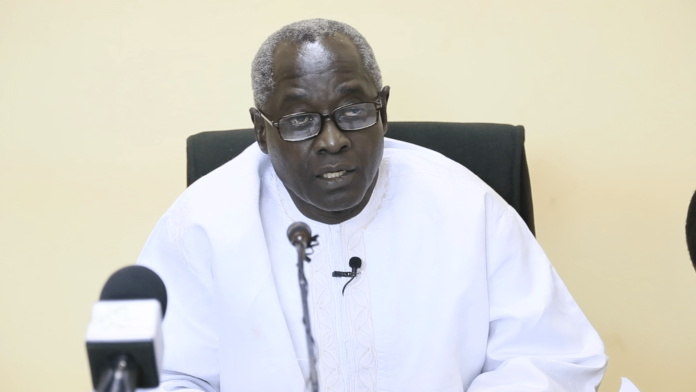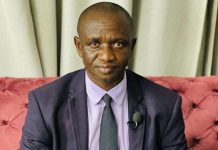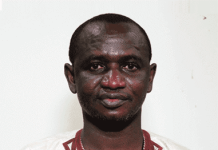By Yankuba Jallow
Halifa Sallah has on Monday cautioned his colleague lawmakers not to be accomplices of unconstitutional acts.
He stressed that they should not be guilty of affirming unconstitutional acts and must ensure that whatever they do must conform with the provision of the law.
He said this while contributing to the motion seeking the confirmation of Bakary Sanyang’s nomination as the Ombudsman by President Adama Barrow.
He said the National Assembly is not under any compulsion to confirm any nomination to the Office of Ombudsman even though the Constitution dictates that National Assembly cannot reject the second nomination by the President.
Vice President, Dr. Isatou Touray, on the 6th April 2020 tabled a motion for the lawmakers to confirm the nomination of Bakary Sanyang, the sitting Governor of West Coast Region as Ombudsman.
Her motion was referred to the committee of the National Assembly responsible for appointment following Sallah’s motion to have it referred to the appropriate committee for proper scrutiny and consultation. Sallah’s motion came after the member for Wuli West, Honourable Sidia Jatta observation that Sanyang is still a public office holder and therefore, should resign before assuming the Office of the Ombudsman. Another lawmaker, Honourable Alagie Jawara of Lower Badibou cited section 164 (4) of the Constitution which states that a public officer cannot be appointed to the Office of the Ombudsman.
Here is Sallah’s full intervention in response to the motion for the confirmation of Sanyang’s nomination to the Office of the Ombudsman by the Vice President, Dr. Isatou Touray.
“Our hands are not tied and we must not allow our hands to be tied and the lesson is very clear as mentioned by the member for Wuli West and rightly quoted by the member for Lower Badibou.
It is very clear from Section 164 that if we reject the first we cannot reject the second.
But still the section remains that the (President) shall appoint an Ombudsman and his or her deputies in consultation with the Public Service Commission subject to confirmation by the National Assembly.
That is there, regardless of first or second (nomination); subject to confirmation by the National Assembly (Emphasis) Should we confirm everything? We can reject or we may not be able to reject but confirmation is our right and that can never be negated.
Honourable Speaker, the Standing Orders tell us under Standing Order 114 “it shall be the duty of the Public Appointments Committee to confirm, consider and advise upon all appointments to a public office to be made by the Executive subject to the confirmation of the National Assembly.
Honourable speaker, I will still move that we suspend the debate; I will say so after I lay the principle that we should still send this appointment to the Committee of Public Appointments today, to look at it, because the issue is not only being qualified, the other issue is being disqualified. That is what the scrutiny requires.
The member for Wulli West and the member for Lower Badibbu had already mentioned the section which quite a number of members had in fact engaged in consultation about. And what was to be confirmed is whether he is still a Governor and the Vice President did indicate that he is still a Governor.
…… (The)Committee by consultation with the individual could advise, because when we scrutinize we invite them and we invite the authorities and through that consultation, if there are disqualification clauses then the person must be required to go and resign and send the letter of resignation to the Committee and the committee should be able to come back and say, ‘well, we are satisfied even though we cannot reject but now we can confirm.
But unless that happens, if we confirm we are complicit. We are aiders and abettors of the violation of the Constitution and this National Assembly must never be found guilty of that.
So in that regard, I will make a motion under Standing Order 53 so that we adjourn the debate and refer the matter to the Public Appointments Committee for proper scrutiny, proper consultation so that the appointment would be duly made as required by the Constitution.”
The motion succeeded after the whole House supported it and the matter was referred to the Committee. Meanwhile the National Assembly has adjourned until further notice.






















